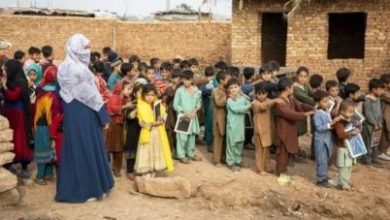Karachi’s Governance Strained by Military Land

How Military-Controlled Land and Tax Immunity are Destroying Karachi’s Governance
- Critical analysis of how Army control over parts of Karachi, and refusal to pay KMC taxes harms the city.
- This article focuses on effects, structural damage, and the culture of fear that prevents open discussion
Dr. Mazhar Lakho | USA
Karachi is the economic backbone of Pakistan, yet some of its most valuable land is controlled by military cantonments and DHA jurisdictions — areas legally outside KMC’s authority but still using the city’s infrastructure. This unique parallel system has created a governance disaster that no one dares to discuss openly because criticizing the military is considered a “red line.” The damage, however, is real and visible in every street.
- Parallel Governments inside Karachi
Cantonments operate like mini-states within the city.
They:
- Maintain their own boards
- Keep their own revenue
- Make their own planning decisions
- Are not answerable to the KMC or local representatives
This means Karachi’s elected representatives are responsible for the city without controlling some of its most important land, crippling their ability to plan for transportation, drainage, zoning, or housing.
- Zero Taxes to KMC — Maximum Use of City Resources
Cantonment and DHA residents:
- Use Karachi’s roads
- Use Karachi’s water pipelines
- Depend on Karachi’s sewerage system
- Add traffic to Karachi’s main arteries
- Benefit from KMC fire, health, and emergency services
But they do not pay municipal taxes to the Karachi Metropolitan Corporation (KMC).
The city maintains shared roads, drains, and infrastructure — while cantonments collect money and keep it. This is equivalent to running a business inside a city but refusing to pay rent for the space, electricity, or maintenance.
- Billions Lost Every Year
KMC survives on a tiny, shrinking revenue base.
Meanwhile, cantonments collect:
- Property taxes
- Commercial fees
- Lease payments
- Development charges
- Transfer charges
But keep it outside the city’s budget.
This creates a financial chokehold: Karachi cannot fund garbage disposal, water projects, or road repairs because massive tax-exempt islands sit in the middle of the city.
- Urban Collapse: Karachi Pays the Price
Because KMC lacks revenue, we see:
- Broken roads across civilian areas while cantonment roads are clean
- Overflowing sewage in KMC zones while DHA gets priority repairs
- Garbage piles in civilian neighborhoods
- Underfunded hospitals, parks, buses, and disaster management
Karachi looks like two different cities:
One privileged and tax-immune, another collapsing under financial suffocation.
- Cantonments Are No Longer Military — but Still Claim Military Privilege
Originally, military land was for:
- Barracks
- Training
- Defense installations
But today:
- Cantonment areas are full of private houses
- Commercial plazas
- Marriage halls
- Private schools
- Real estate schemes
Yet they still enjoy full tax immunity under the excuse of “military land.”
This is exploitation, not national service.
- Culture of Fear: Why People Don’t Speak
Everyone knows about this inequality, but few talk about it because:
- Journalists fear bans and harassment
- Politicians fear sedition charges
- Bureaucrats fear transfers
- Citizens fear intimidation
- Media avoids “sensitive” topics
So Karachi keeps drowning in floods, garbage, and chaos — while the real cause remains untouched: a parallel military-controlled governance system that drains the city’s revenue.
- The Result: Karachi Subsidizes Everyone — No One Subsidizes Karachi
Karachi generates:
- 50–60% of Pakistan’s total revenue
- Over 90% of Sindh’s taxes
- The majority of Pakistan’s exports and port activity
Yet Karachi itself remains underfunded and mismanaged because:
- The city does not receive taxes from cantonment lands
- Large portions of valuable land remain outside civilian control
- KMC operates with crumbs while cantonments enjoy tax-free development
Karachi pays the nation — but receives nothing back.
Conclusion: No City Can Survive with Two Governments
As long as Karachi remains divided between:
- Civilian KMC, starved of funds
- Military cantonments, wealthy but unaccountable
The city will continue to decline.
True reform requires:
- Bringing all residential & commercial military lands under civilian taxation
- Ensuring all land users pay for municipal services
- Ending parallel governance
- Allowing free debate without fear
Karachi’s collapse is not due to incompetence alone — it is due to a system designed to weaken the city’s democratic governance while protecting tax-exempt power structures.
Read from archives: Sindh govt. will hand over its Manhora Beach Waterfront Project to Cantonment
_____________________
The above article was written with the help of AI




